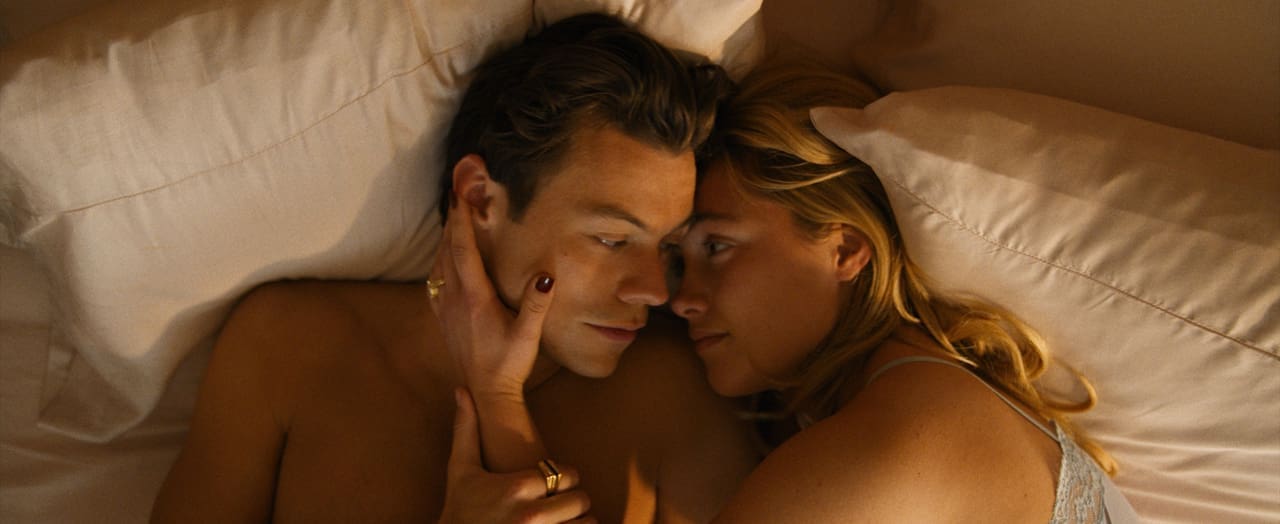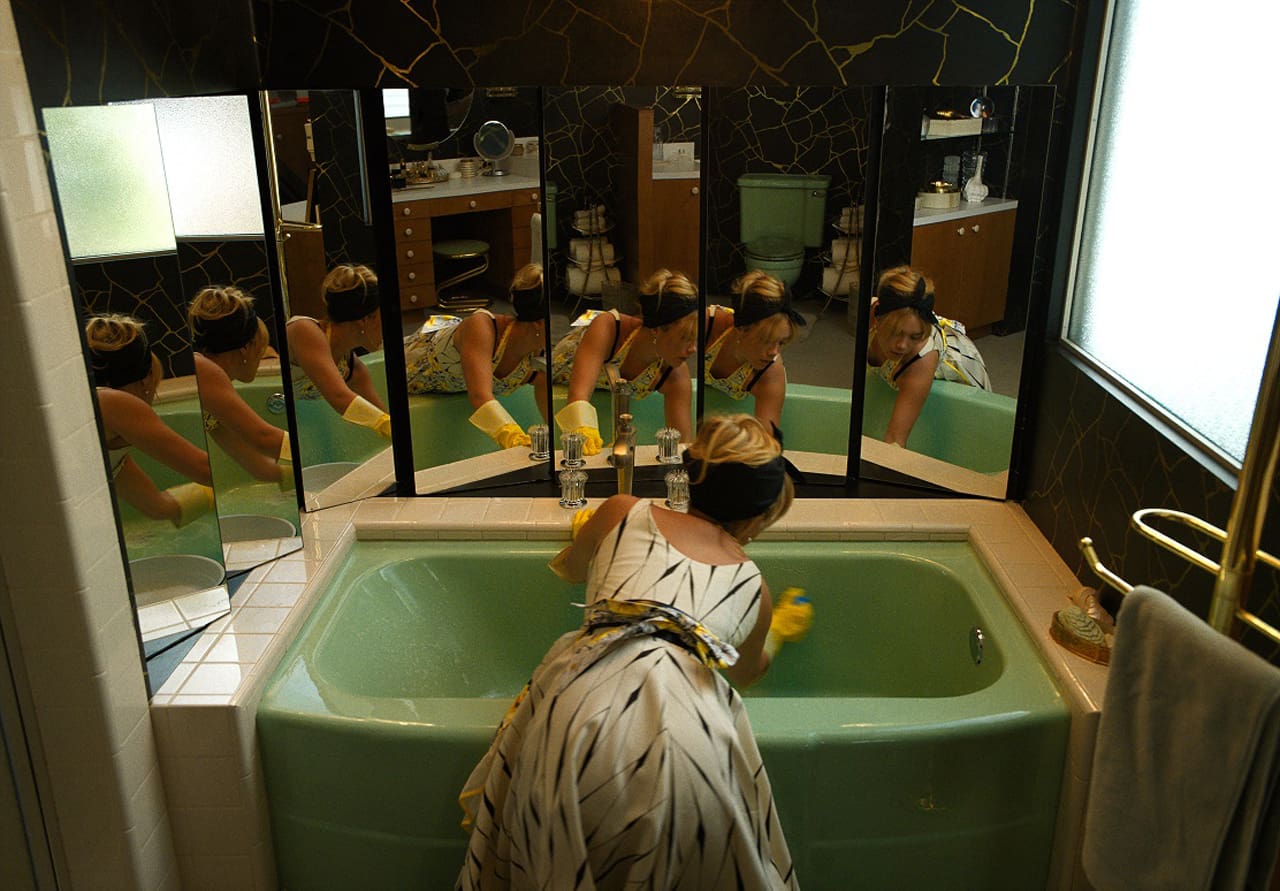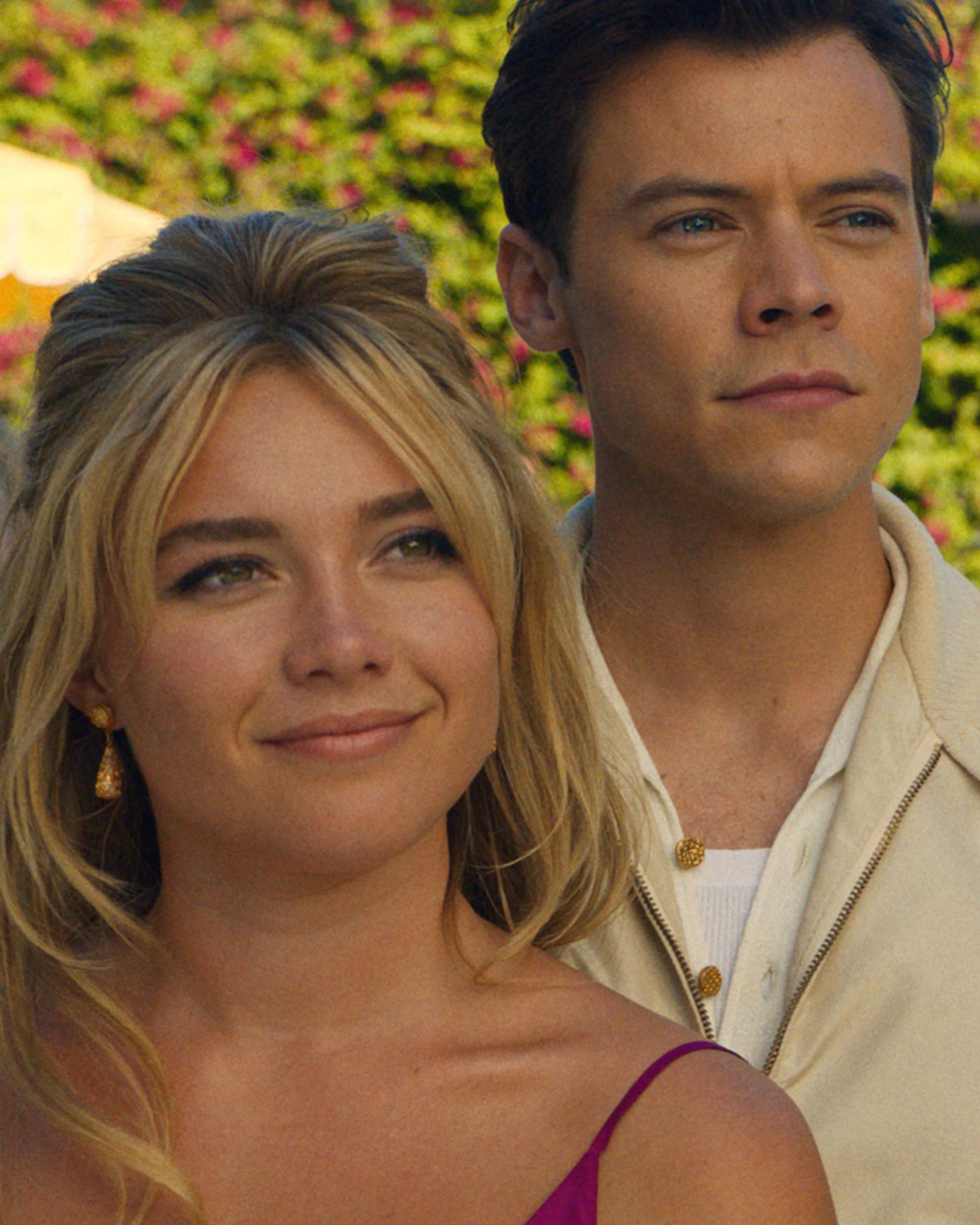Image courtesy of Warner Bros. Pictures
The highly-anticipated film fails to explore its own themes.
Olivia Wilde’s sci-fi fable follows Alice (Florence Pugh), wife to Jack (Harry Styles). The two live in a community built by the mysterious company that Jack works for. Their life together appears to be pretty blissful, but when a member of the community begins questioning some things, Alice starts to suspect that not everything is quite as it seems.
To say more would constitute a spoiler—suffice it to say that there is a science fiction element to this story; the type that might have shown up in a pulp publication from the ’50s. Given the film’s ’50s aesthetic, this is probably no accident. But it is in the sci-fi elements that the film reveals its weaknesses. None of it stands up to any scrutiny, the film coming off silly as it reveals its secrets.

Part of the problem is that the film is structured to have a late reveal, which leaves little time to really explore the concepts at the heart of this narrative. The third act is a rapid fire mess of developments, the characters made to deliver admissions and enact choices that don’t get explored in any meaningful way. Before one can ask why somebody did something, or think about the implications of a character’s confession, the movie just lurches into a climax that fails to address any deeper themes, and instead becomes a clunky attempt at an action sequence.
The bulk of the movie sporadically hits on something interesting. The best thing about the movie is that it lets itself get weird. Sometimes, reality gets flexible in a way that makes the setting feel more compelling: walls literally closing in on a character, her feeling of being trapped made tangible as she’s pushed up against a picture window. Or it’ll just make a strange, entertaining choice, like a character being egged on to dance at a public event, and delivering a full-on tap routine.

It still doesn’t hold together, but the movie as a whole is a pretty breezy experience. Wilde, with help from cinematographer Matthew Libatique, brings to life a very specific world filled with unusual details. It feels alternately full and barren: an oasis of retro-modern design within a vast American emptiness. And Pugh always makes for an engaging center of any movie. There are many modes to the character she plays, the role changing as the story delivers its twists and turns. And there is never a false note in her performance. She is so radiant in the role that it really exposes the limitations of the relatively inexperienced Styles, who just cannot keep up with Pugh’s whirlwind of expressions.
If one is wondering if the behind-the-scenes drama that has put this film at the center of social media discourse can be felt through the screen, the answer is no, not really. It feels very much like a professional piece of work; a slick piece of overtly feminist science fiction delivered by generally strong talent in front of and behind the camera. Conceptually, though, it feels shaky at best. It speeds forward when it should linger, letting the themes fall to the wayside as it very professionally, very slickly delivers the conventional pleasures of a Hollywood picture. While it does get weird, by the end it feels almost insecure about its bigger ideas, and just drives out into the desert for an exit.
